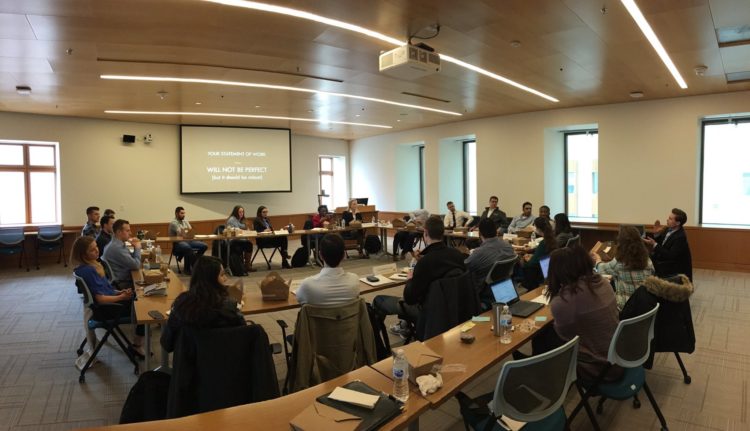“Data can be used for great good to make a significant positive difference in our communities and our lives… but not without some problems.”
– Naveen Pinjani, Sr. Director Big Data Analytics at Daugherty Business Solutions
At the Data for Good conference on October 5, speaker Naveen Pinjani, along with consultant Jonathan Leek, dynamically kicked off a panel on the Vacancy Collaborative. The Vacancy Collaborative’s mission is to address St. Louis’s vacant property issue and perfectly reflects the conference’s core goal: to celebrate the combination of values-based-leadership and analytics.
Leek knew two things before the creation of the Vacancy Collaborative: He was a skilled data analyst and he wanted to help the community. Knowing this and the brutal fact that about 15 percent of all land in St. Louis is vacant, he put his skills to use.
Addressing this issue has been complicated. Leek asked, “How do we address what we can’t understand?” The data problem presented was that there are city employees who are doing the best they can, but aren’t trained in using and analyzing data. Leek recognized that systems are often put in place by those unfamiliar with data best practices. Along with volunteers, Leek set out to use his data skills to tackle the basics—how many vacant properties/lots exist, where they’re located, and what to prioritize.
Over the past year, the Vacancy Collaborative has combined four data sets, cleaned them up, and defined what each set means. They are on their way to incredible impact. The volunteer aspect of the project comes with its pros and cons; Leek explained its lack of bureaucracy is great, along with the autocratic decision-making process, but there’s a lack of input from domain experts and limited tools, resources and time.
Even with the negatives, the Vacancy Collaborative was able to convince Cindy Riordan, CIO of the city of St. Louis. Riodan said, “The vacancy data lit a spark with our [the City of St. Louis] staff.”
The vacancy issue affects the entire city from crime rates, to public health, to the city budget. The Vacancy Collaborative is now working on refining its web portal and even expanding to new data sets unrelated to vacancy. If you’re interested in reading more, check out STLVacancy.com.
Sarah Podolsky, BSBA ’19, wrote this on behalf of the Bauer Leadership Center. Pictured above: Jonathan Leek, a consultant with Daugherty Business Solutions and volunteer with the Vacancy Project, presents to the Data for Good audience.



 Hundreds of students, business leaders, and alumni assembled at Olin for the school’s first “Data for Good” workshop on October 5, 2018. The event shined a spotlight on WashU Olin’s focused approach toward values-based, data-driven decision-making among its students by drawing together industry experts who spoke of using big data, artificial intelligence, and machine learning, to make material improvements in their businesses—and the community at large.
Hundreds of students, business leaders, and alumni assembled at Olin for the school’s first “Data for Good” workshop on October 5, 2018. The event shined a spotlight on WashU Olin’s focused approach toward values-based, data-driven decision-making among its students by drawing together industry experts who spoke of using big data, artificial intelligence, and machine learning, to make material improvements in their businesses—and the community at large.

